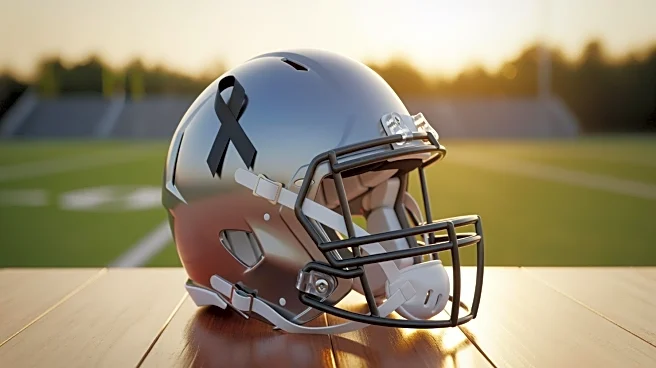What's Happening?
Bryce Riley, a junior running back for West Aurora, continues to make significant contributions to his team both as a running back and a receiver. In a recent game against East Aurora, Riley had two catches
for 12 yards, including a 4-yard touchdown. Despite a quiet night statistically, his versatility and unselfish play were highlighted by his coach, Nate Eimer, who praised Riley's blocking abilities and his impact on the field. Riley's performance is driven by the memory of his late father, who was tragically killed in Chicago. Riley carries a chain with his father's picture during games, using his father's memory as motivation to excel in football.
Why It's Important?
Riley's dedication to his late father and his ability to perform in multiple roles on the field exemplify the emotional and personal motivations that drive athletes. His story highlights the impact of personal loss on athletic performance and the ways in which athletes channel their emotions into their sport. Riley's versatility as both a running back and receiver adds depth to West Aurora's offensive strategy, making him a valuable asset to the team. His unselfish play and leadership qualities contribute to the team's overall success, inspiring teammates and coaches alike.
What's Next?
As Riley continues to develop his skills, he aims to reach the next level in his football career, driven by the desire to honor his father's memory. His coach and teammates will likely continue to support his growth, recognizing his potential to contribute significantly to the team's future successes. Riley's story may inspire other athletes facing personal challenges to persevere and use their experiences as motivation to achieve their goals.
Beyond the Headlines
Riley's story underscores the broader cultural and emotional dimensions of sports, where personal narratives and motivations play a crucial role in shaping athletes' careers. It highlights the importance of mentorship and support systems within sports teams, as coaches and teammates rally around players facing personal adversities. Riley's journey may also prompt discussions on the role of sports in providing a therapeutic outlet for individuals dealing with grief and loss.











